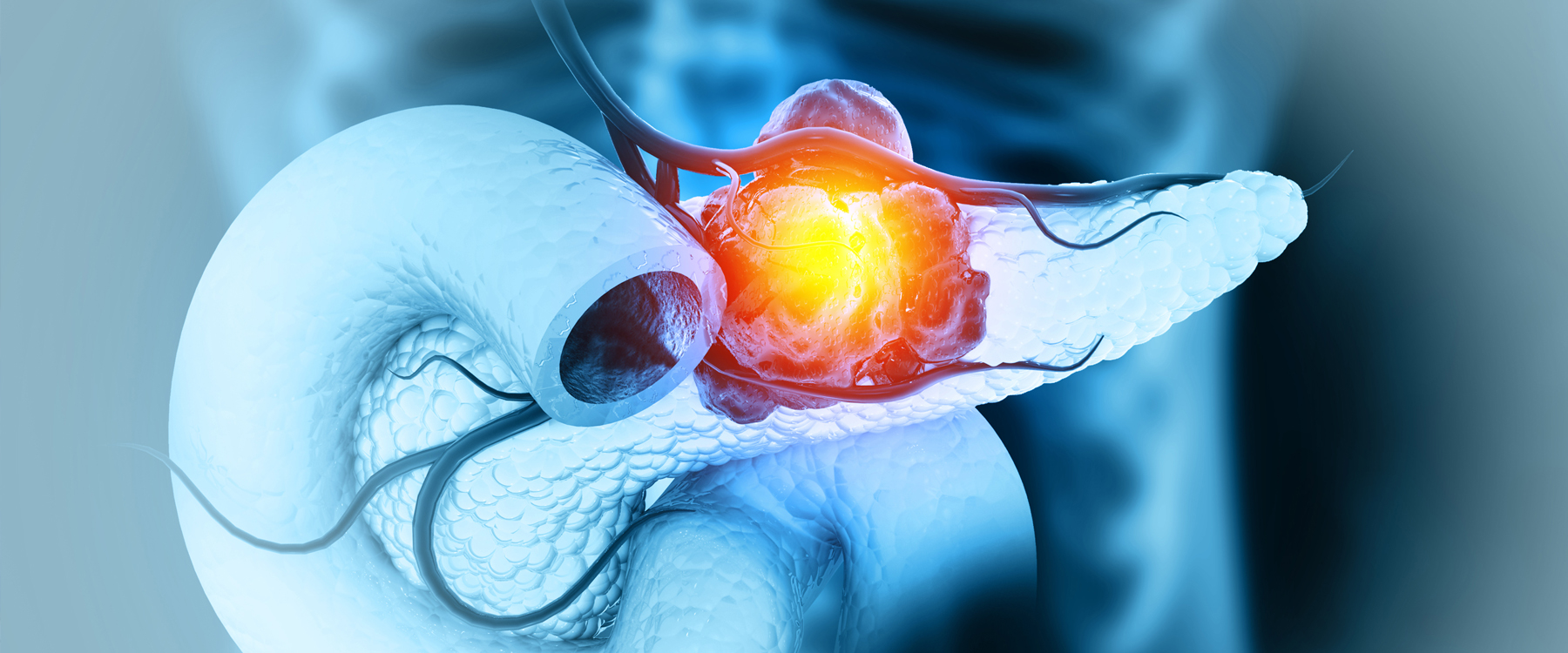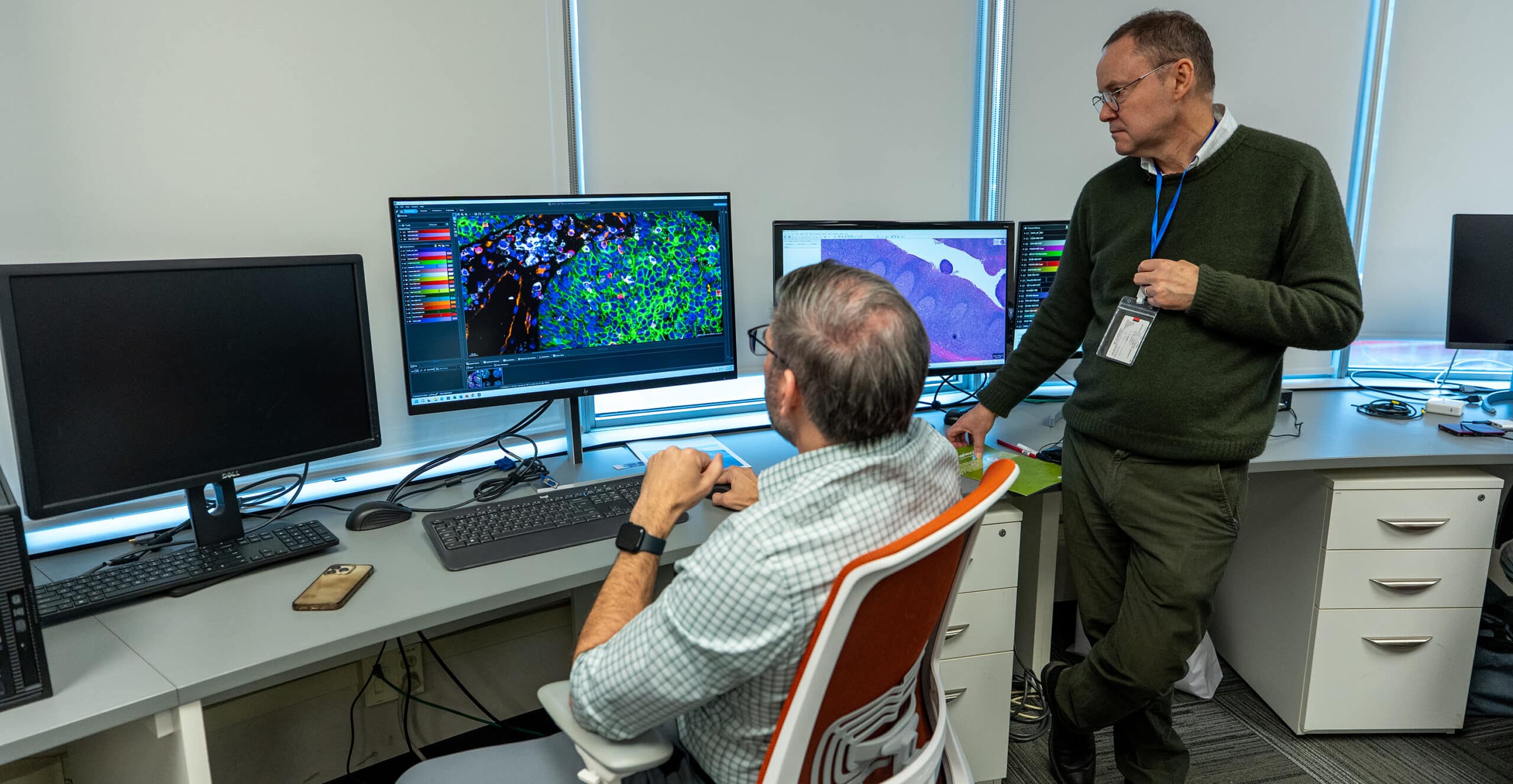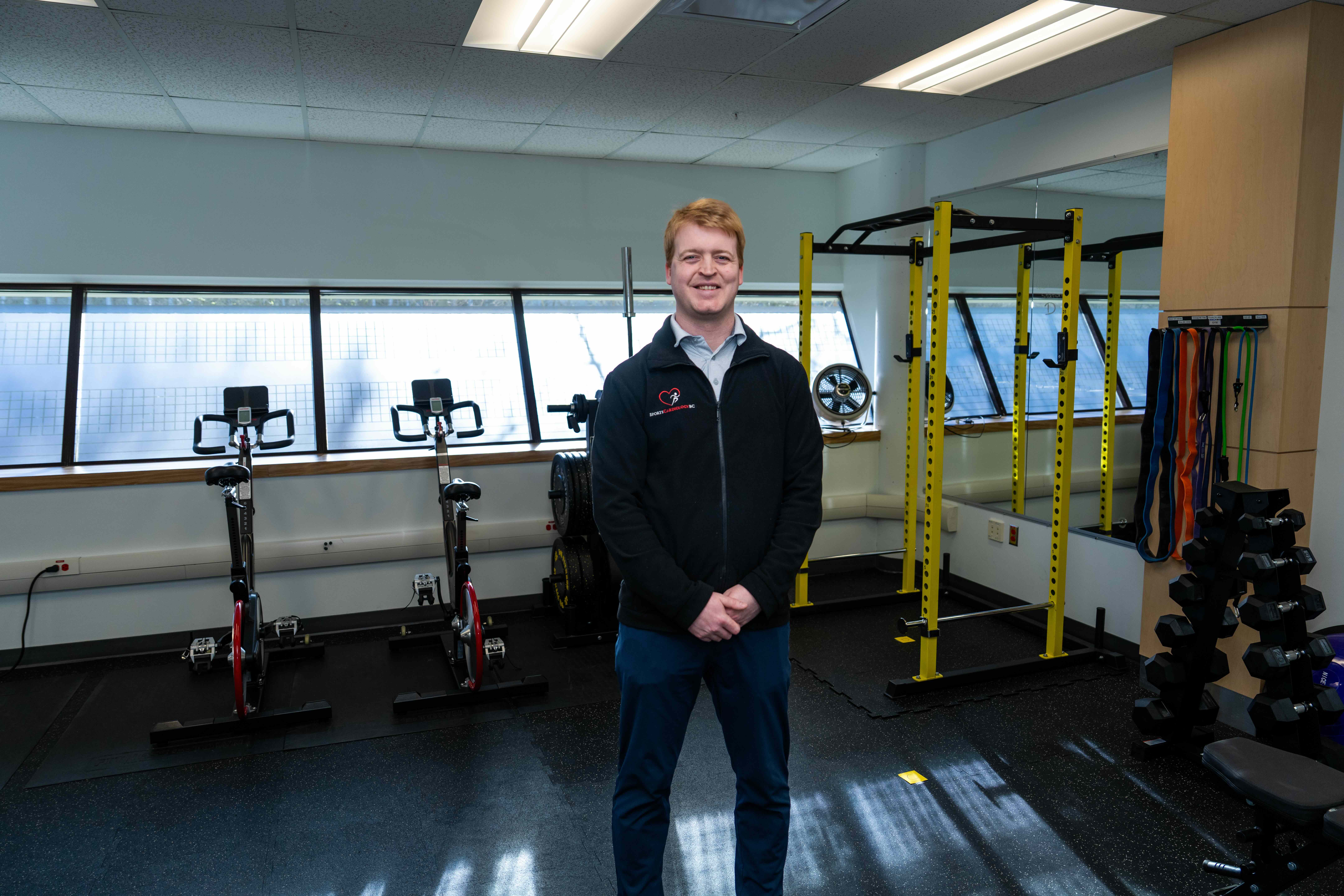With support from VGH & UBC Hospital Foundation donors, researchers in Vancouver have made a groundbreaking step in pancreatic cancer diagnostics.
Using artificial intelligence (AI), the team developed a deep-learning tool capable of classifying the most common form of pancreatic cancer – pancreatic ductal adenocarcinoma (PDAC) – into molecular subtypes. This enables quicker, more accessible diagnoses and subtyping, leading to improved patient outcomes through timely, tailored treatments.
“More and more potentially actionable subtypes to personalize treatment for pancreatic cancer patients are being discovered,” said Dr. David Schaeffer (pictured below), co-lead investigator, head of the Department of Pathology and Laboratory Medicine at VGH, and co-director of Pancreas Centre BC. “However, the subtyping is still entirely based on genomic methodology based on DNA and RNA extracted from tissue. This methodology is outstanding if sufficient tissue is present, which is not always the case for PDAC tumors given the difficult anatomical location of this organ.”
“Our study provides a promising method to cost-effectively and rapidly classify PDAC molecular subtypes based on routine hematoxylin-eosin–stained slides, potentially leading to more effective clinical management of this disease.”

Third leading cause of cancer mortality
PDACs have recently surpassed breast cancer as the third leading cause of cancer mortality in Canada and the United States, according to the study. Surgery can cure approximately one-fifth of PDAC cases if they are detected early. Although surgical intervention is provided to these patients, the five-year survival rate remains at 20%
“The main achievement of this study is the fact that the AI model was able to detect the subtypes from biopsy images, making it a highly useful tool that can be deployed at the time of diagnosis,” said Dr. Ali Bashashati, co-lead investigator and director of AI research at the Ovarian Cancer Research Program.
“This AI-based approach offers an exciting advancement in pancreatic cancer diagnostics, enabling us to identify key molecular subtypes rapidly and cost-effectively.”
The study appeared in the December 2024 issue of The American Journal of Pathology, published by Elsevier. Click here to learn more.
VGH & UBC Hospital Foundation partners with donors to raise essential funds for specialized adult health care services and research benefiting everyone in BC, supporting Pancreas Centre BC and numerous specialized programs across Vancouver Coastal Health. To donate, visit vghfoundation.ca/ways-to-give.
Share this:



